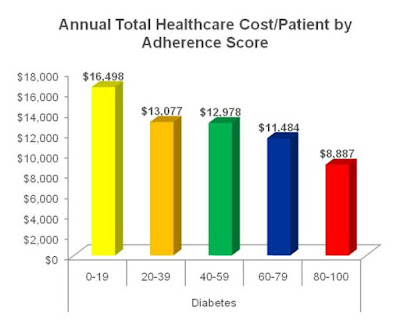 |
| Source: Impact of medication adherence on hospitalization risk and healthcare cost |
Although rising prescription drug prices cause a financial burden, the cost often extends beyond the number that patients see on their bill, according to a recent analysis published in the Annals of Pharmacotherapy. When medication regimens are not appropriately optimized for the patient, the consequences can carry a hefty price tag.
According to the analysis, death and illness resulting from non-optimized medication therapy costs $528.4 billion annually, which is equivalent to 16% of total US health care expenditures in 2016. As the most readily available access point for most patients, pharmacists can play a key role in ensuring that medication therapies are optimized to help produce the best outcomes at the lowest cost.
Tyrone’s Commentary:
No plan design is complete without a comprehensive medication adherence program. Key components of an employer plan to improve medication adherence include:
- Employee coaching and support teams
- Financial incentives to encourage medication adherence
- Ensuring that the most appropriate medications are prescribed
- Prescription management to avoid interactions and other dangers
The study was led by Jonathan Watanabe, PharmD, PhD, associate professor of clinical pharmacy in the Skaggs School of Pharmacy, with Jan Hirsch, PhD, professor of clinical pharmacy and chair of the Division of Clinical Pharmacy at Skaggs School of Pharmacy, and Terry McInnis, MD, of Laboratory Corporation of America and the Get the Medications Right Institute.